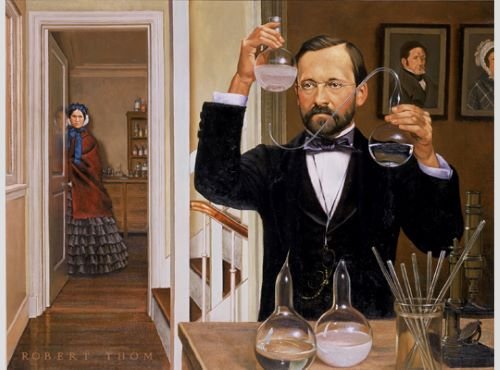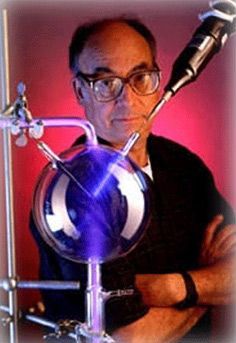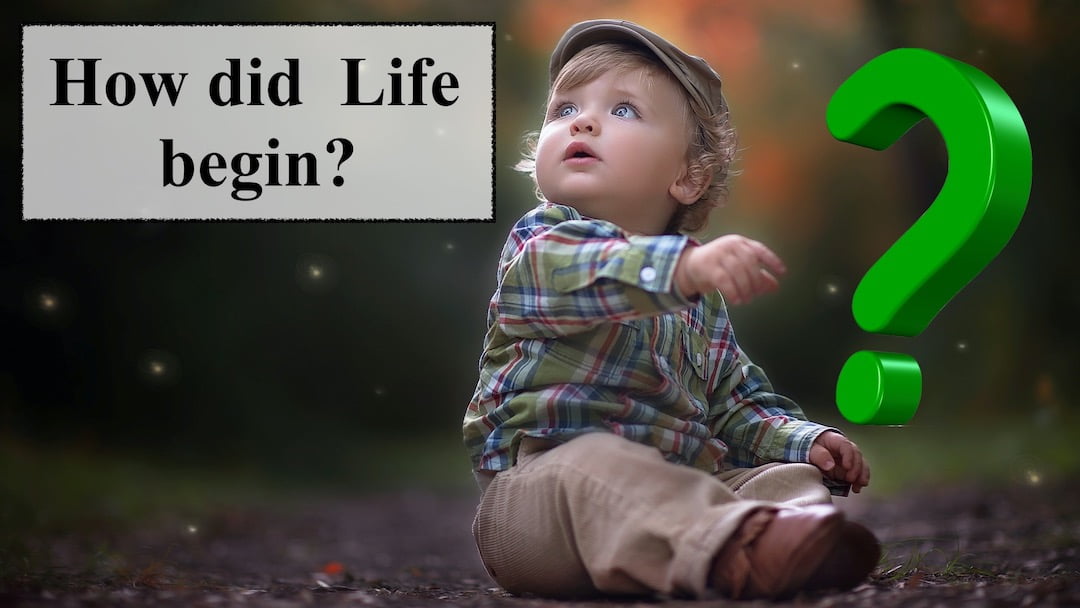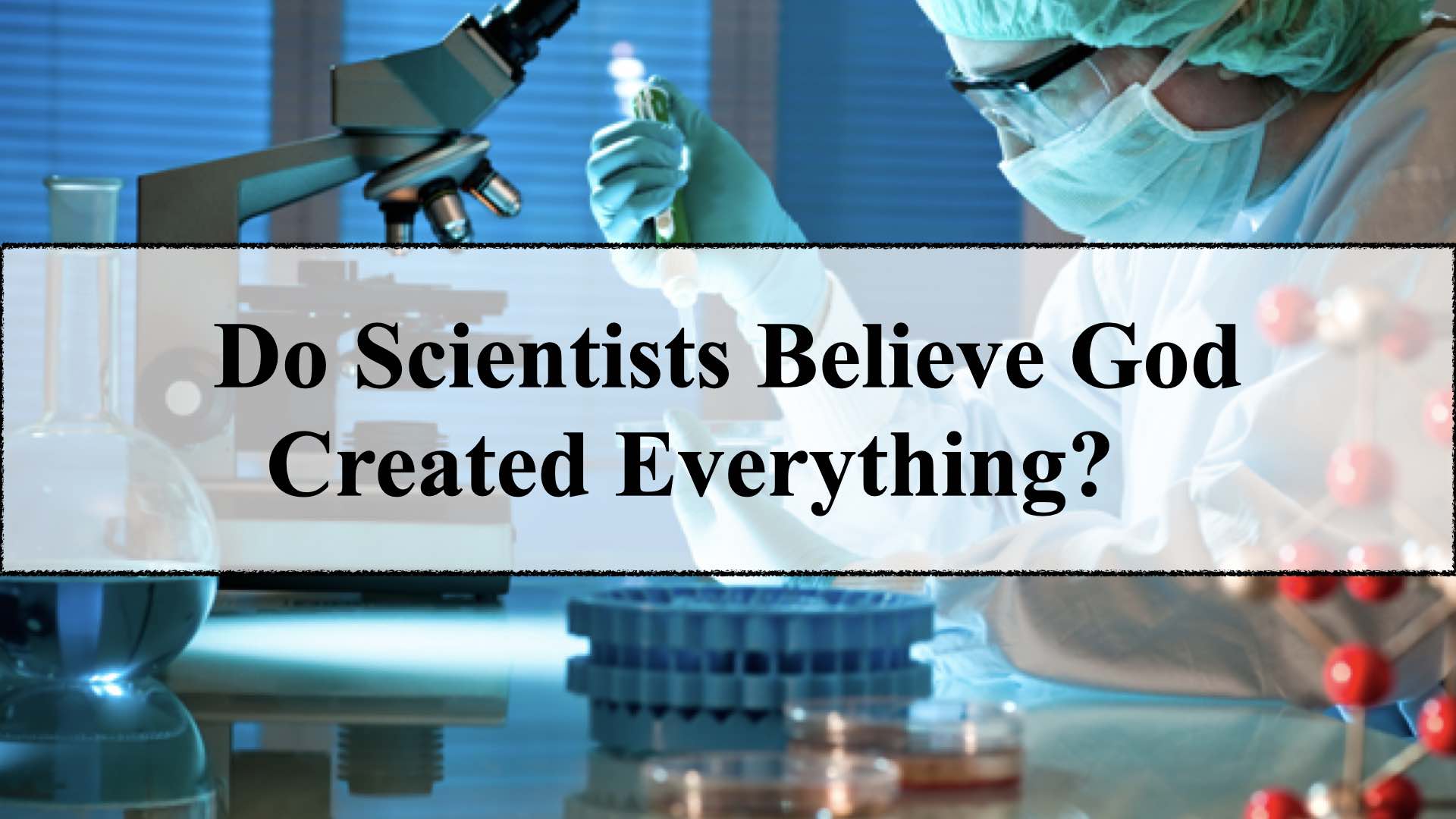How did life begin? This is a question that science has been trying to answer for hundreds of year, and still science cannot give a satisfactory, scientific answer to this question. Evolution attempts to answer this question, but the evolutionary theories constantly have to be re-written and changed due to new scientific discoveries and understanding. Still, there is no factual proof of evolution, rather there are scientific law that would disprove the possibility of evolution. Let us consider this question of how life began for a while in this article.

According to evolution, several billion years ago, at one spot on Earth, some dead inorganic substances decided of their own will, and with no external forces except the existing natural phenomena, to come together and from the first living cell.
The first point in this theory is the assumption that life could come from dead matter. This was the general belief in the days of Darwin. People believed in spontaneous generation. They believed that dead meat generated maggots, and that form garbage mice were generated, and flies and insects also. Scientifically, Louis Pasteur then proved that all of this was wrong, and established the law of Biogenesis which state that “Life can only come from life.” However, many years later, even after experimental evidence proved that spontaneous generation is not scientific, some scientists still cling to the idea of the spontaneous generation of microscopic animals. Pasteur’s Law of Biogenesis disproves this and subsequent experiments disprove this, so why do some scientists still claim that originally life came from non-living materials? Is this even possible?


In the days of Darwin, it was thought that the simple cell was really simple. Today modern science tells us that the simple cell contains thousands of different kinds of proteins and other substances, with billions of each kind along with all kinds of DNA, RNA and other highly complex molecules arranged in an incredibly complicated system – all this in one “simple cell.”
The more scientists carry out research about DNA and the genes, the more they are fascinated by the complexity of life. For the purpose of our subject, I shall try to simplify the situation in order to give the reader an idea of the implication of the complexity of this subject on the theory of evolution.
The two basic parts of every living system are DNA and protein. All human characteristics are “spelled out” in about two metres of DNA all coiled up when life starts off as a tiny little ball the size of a dot on this page!
DNA is built like a string of pearls, whose links act like letters of the alphabet to spell out hereditary instructions. Proteins are chains of amino acids. Each chain coils into a special shape that has a special function like muscle contraction, digestion, etc. For example, chains of several hundred DNA bases tell the cell how to make the protein hemoglobin, and that protein functions as the oxygen carrier in red blood cells.


The start of the relationship between DNA and protein causes a major problem to evolutionists. Left to themselves, the natural trend of acid-base reactions is to scramble up DNA and protein units in all sorts of deadly combinations. This is why, even under sophisticated and controlled laboratory conditions, the famous experiments carried out by Miller, Fox and others to produce life in the laboratory never worked. Left to time and chance, and their inherent chemical properties, the bases and amino acids of DNA and proteins would react in ways that would react in ways that would destroy any hope of producing life.
To make a living cell alive scientists need Creation! Only God, who the Bible says IS LIFE, can generate or create life. Only God could organize matter into the first living cells. Once the parts are in place, there is nothing mysterious in the way cells make proteins. It is what we know and can explain about DNA and protein and the laws of chemistry which point out that life is a result of creation by God. It is the scientific model that agrees with the scientific evidence.
Dr. Michael Denton, an authority on molecular biology, in his book “Evolution: A Theory in Crisis” refers to the chemical evolution of life as “simply an affront to reason.” By this he means, evolution is not reasonable and not scientific. He goes on to say, “The really significant finding that comes to light from comparing the protein’s amino acid sequences is that it is impossible to arrange them in any sort of an evolutionary series.”

Dr. Lipson, the British physicist, comments in an article published by “Physics Bulletin” entitled “A Physicist Looks at Evolution.” If living matter is not, then, caused by the interplay of atoms, natural forces, and radiation, how has it come into being?”
After dismissing a sort of directed evolution, he concludes: “I think, however, that we must go further than this and admit that the only acceptable explanation is creation (by God)…”
So we learn that the conclusion from the modern sciences of molecular biology, genetics and physics is that life is a miracle performed by the Creator.
Mathematically speaking, the possibility of such a simple cell coming about by chance (assuming it is possible to obtain it form dead, non-living matter), has been calculated by a number of mathematicians. One of the more optimistic information scientists. M. Golay, calculated of probability of the accidental ordering of particles into a replicating system. He calculated the figure based on the assumption that it was accomplished by a series of 1500 successive events, each with the generously high probability of 1/2. The probability would have been much lower if it had to be accomplished in a single chance event. The result was 1 in 10450 in other words 1 outcome in 10 raised to the power of 450 attempts! When the probability of occurrence of an event (in this case 1 in 10450) is smaller than one out of the number of events that could ever possibly occur (10170) then the possibility of its occurrence is considered by mathematicians to be zero.
Sir Fred Hoyle, the famous evolutionary Professor of Astronomy at Cambridge, spent time working out the possibility of life arising by chance. He made news under the heading “There must be a God” in the London Daily Express. This was the very conclusion he reached after detailed mathematical analysis of the belief that life could result from time, chance, and the properties of matter. It was, according to Sir Fred Hoyle, comparable to the belief that “…a tornado sweeping through a garbage heap might assemble a Boeing 747 plane from the materials there.” This, as we all know, would be totally impossible. So what this evolutionary scientist was admitting was that he had come, through careful scientific study, to the conclusion that evolutionary processes could not have generated life, and that life must have been created by God.

We read in newspapers and hear reports claiming that scientists have been able to create life in their laboratories. Do not believe those reports, but examine them, looking carefully at the processes used and you will find out that scientists have not come anywhere near to creation of life or even the simplest forms of cells. In some cases they used chemicals and applied a sophisticated source of energy that could not have existed in an early world. Even with such unrealistic systems, only certain chemicals were synthesized, which is a logical result, but nowhere near to the cell and certainly not living.
All those teams of PhDs and great specialized scientists, all the funds for research work, all the modern machinery, equipment and computers of the most sophisticated laboratories in the world, and scientists are not able to create the simple cell from dead matter. Yet evolutionists want us to believe that it simply happened on its own billions of years ago assuming that by going back to the dark past, no one will be able to question them; but the facts are clear as daylight.
Therefore, neither scientifically, nor mathematically, nor logically could the first cell have appeared by accident. More than faith would be necessary to believe in such an accident which evolutionists call science.
Our conclusion is, therefore the conclusion of many modern scientists, that creation, or the origin of life happened as the Bible states in the first sentence, “In the beginning, God created…”
Much of this article was taken from the book “And God said … Science Confirms the Authority of the Bible” by Dr. Farid Abou-Rahme, Ph.D. For more information regarding this, kindly contact us at: info@nepalgoodnews.com






